Key takeaways:
- Cybersecurity threats, including phishing, ransomware, and data breaches, can significantly impact individuals and businesses, highlighting the importance of being informed and vigilant.
- Real-life experiences with threats emphasize the need for skepticism, unique passwords, and cybersecurity awareness to protect against potential risks.
- Proactive measures such as setting up firewalls, regularly updating software, and educating family members can enhance overall cybersecurity and create a safer digital environment.
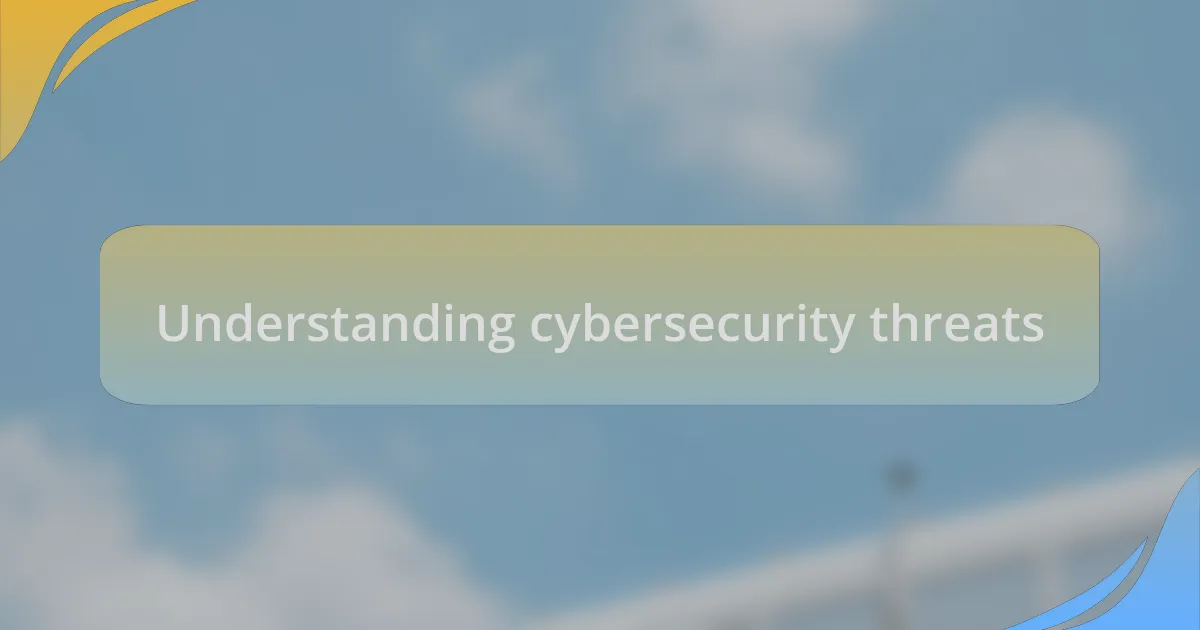
Understanding cybersecurity threats
One of the most unsettling aspects of cybersecurity threats is their unpredictability. I once received a phishing email that seemed so genuine, it took me a moment to realize it was a trap. Have you ever felt that sinking feeling when you discover a digital threat lurking in your inbox? It’s a reminder of how easily we can be caught off guard.
Cybersecurity threats can take many forms, from malware to ransomware. I remember a friend whose entire business was paralyzed by such an attack; the fear of losing everything was palpable. It’s not just about protecting data; it’s about safeguarding livelihoods and peace of mind.
In my experience, understanding these threats is essential to mitigating risks. Each time I delve into cybersecurity issues, I think about how many people remain unaware of the lurking dangers. Isn’t it crucial for us to stay informed and vigilant? After all, being proactive is the best defense against threats that can strike when we least expect them.
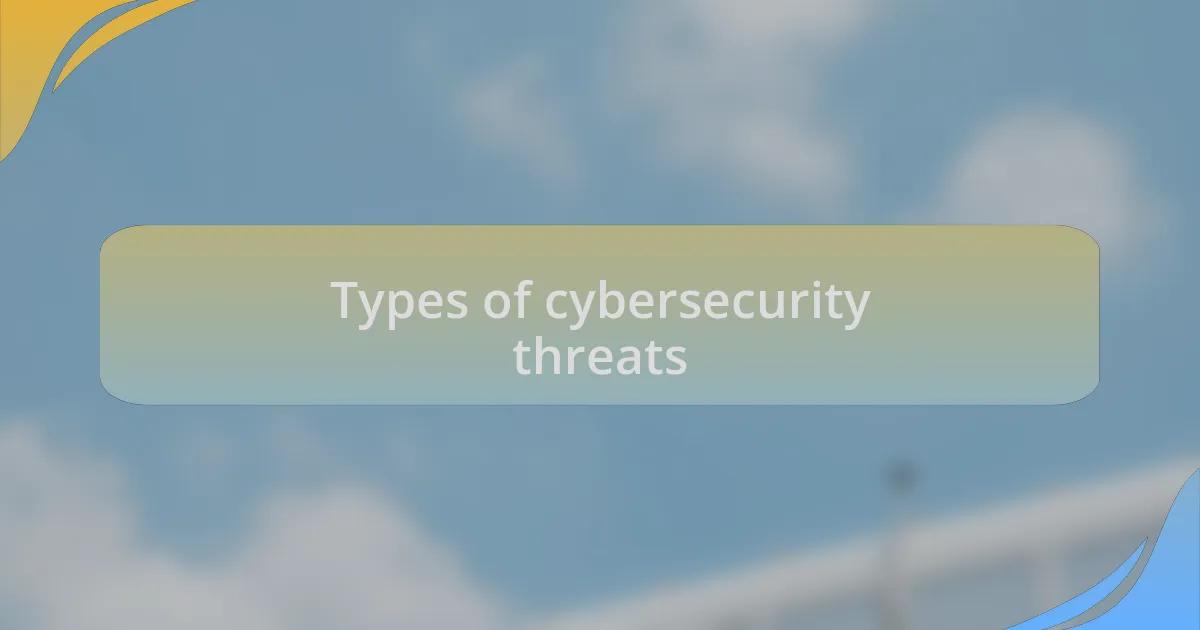
Types of cybersecurity threats
Cybersecurity threats manifest in a variety of ways, each posing unique challenges. For example, I once faced a denial-of-service attack that brought my website to a standstill. It left me anxious, wondering how many visitors I lost during that critical downtime. Have you ever experienced the frustration of dealing with an unresponsive system due to cyber maliciousness?
Another common threat is social engineering, where attackers manipulate individuals into divulging confidential information. I recall a colleague who, through a casual conversation, unknowingly revealed sensitive details that compromised our security. It made me realize how important it is to maintain vigilance in our interactions—who would think a simple chat could open the door to such risks?
Then there’s the ever-looming shadow of data breaches. I remember reading about a significant breach at a major corporation that affected millions of customers. The thought of personal information being stolen is unsettling. Isn’t it alarming to consider how our digital lives are increasingly at risk? Understanding these various threats is critical in building a robust defense against the myriad challenges we face today.
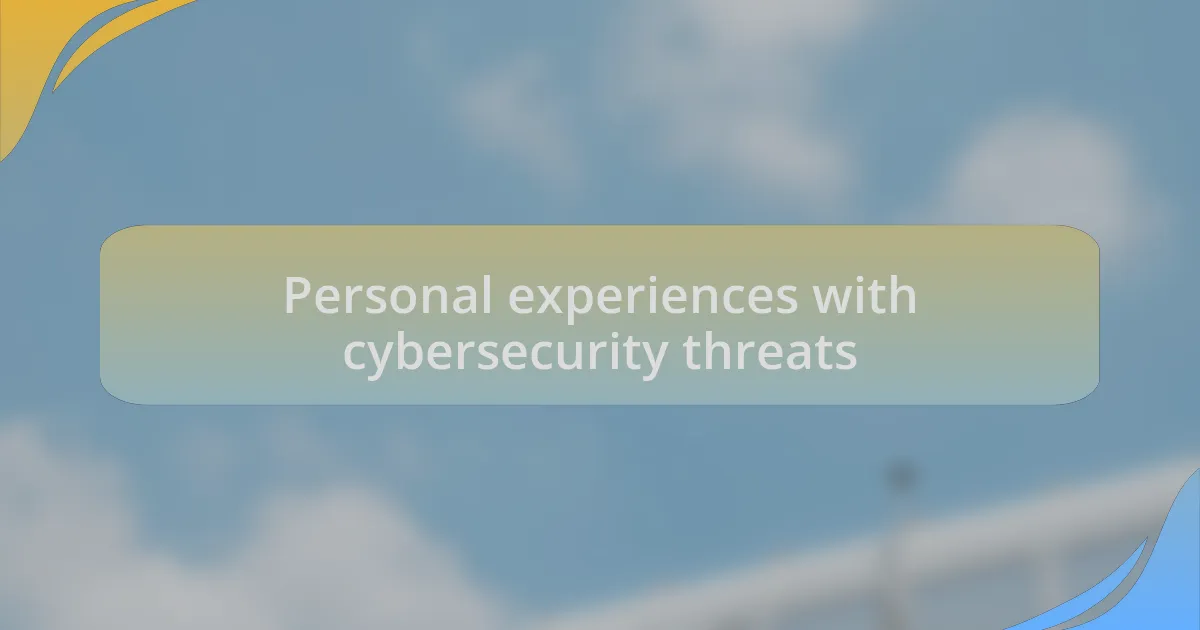
Personal experiences with cybersecurity threats
Cybersecurity threats have a way of creeping up on you when you least expect it. I remember the first time I received a phishing email that looked completely legitimate. I hesitated but ultimately clicked the link. The moment I realized what I had done—the sick feeling in my stomach was something I’ll never forget. Have you ever felt that rush of panic after realizing your mistake?
Another striking experience was encountering a ransomware threat. A colleague in my network faced a situation where all her files were encrypted, and she received a chilling ultimatum to pay a hefty sum or lose everything. It made me reflect on how vulnerable our information truly is. Can you imagine losing years of work due to a single malicious attack?
Then there’s the feeling of violation that comes with identity theft. A close friend of mine experienced it firsthand when someone used her details to open credit accounts in her name. The emotional toll it took on her was profound—trust was broken, and the hours spent resolving the mess felt endless. It’s a harsh reminder of how crucial it is to monitor our online presence. What steps do you take to safeguard your identity in a world where threats are ever-present?
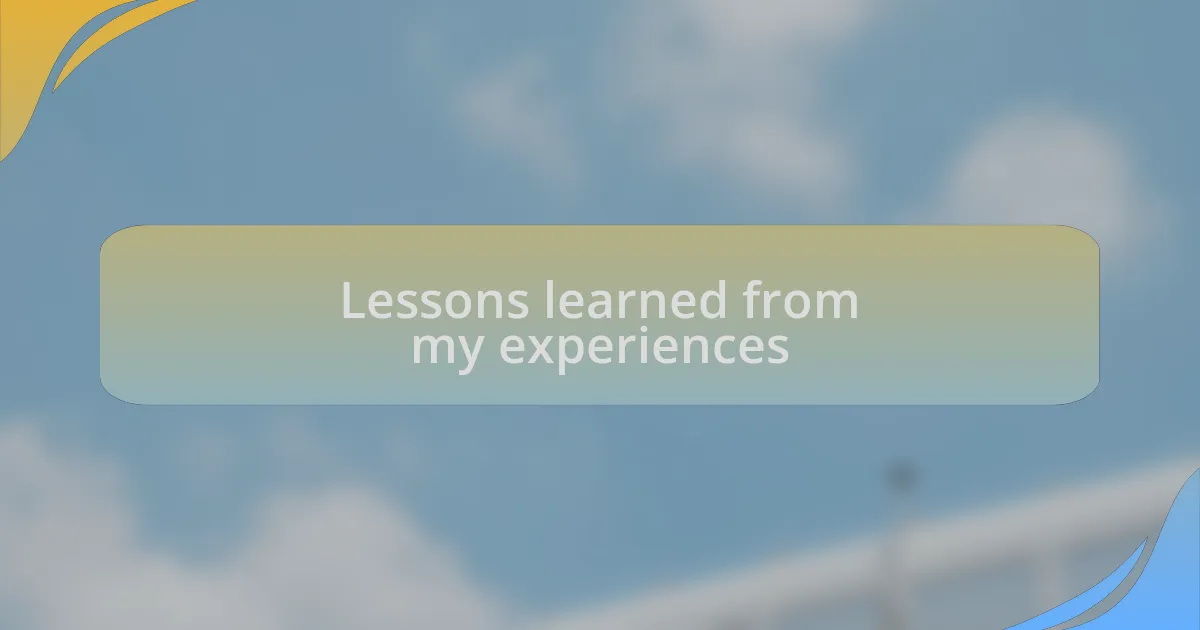
Lessons learned from my experiences
One of the biggest lessons I learned is the importance of vigilance. I recall a time when I received a suspicious text message pretending to be from my bank. After some initial hesitation, I almost disclosed my account information. Luckily, something told me to pause and investigate further. It reinforced the idea that a moment of skepticism can often be your best defense. Have you ever paused before sharing sensitive information?
Another critical insight emerged from a simple password mishap. I used the same password across multiple platforms, thinking it was easier to remember. When one site suffered a breach, my accounts elsewhere were at risk too. I felt a surge of regret—it made me realize the value of unique, complex passwords and a reliable password manager. How many of us are guilty of making that same mistake?
Through these experiences, I developed a greater appreciation for cybersecurity awareness. Participating in local workshops opened my eyes to new tactics and tools for protection. I remember the first time I implemented two-factor authentication; I felt empowered and secure. It was a small change that made a huge difference. Don’t you feel a sense of control when you actively protect your digital life?
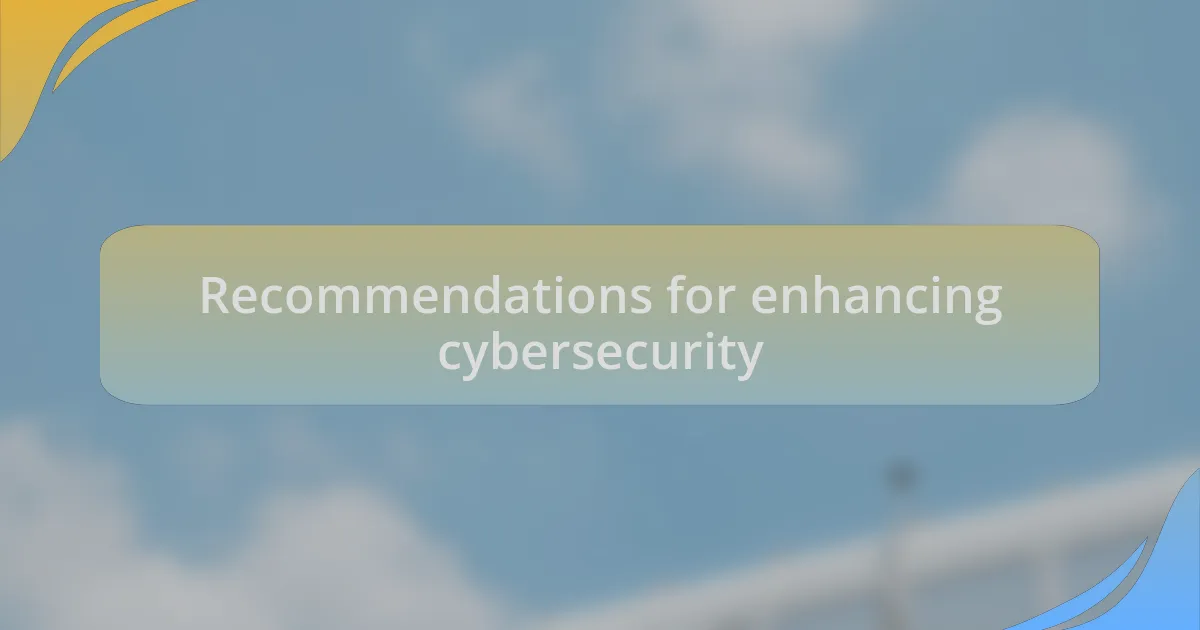
Recommendations for enhancing cybersecurity
Adopting a proactive approach to cybersecurity is essential. I remember a time when I decided to set up a home firewall after learning about potential vulnerabilities in my network. By taking this simple step, I felt a renewed sense of security and control over my digital environment. Have you considered the value of a sophisticated firewall in keeping your data safe?
Regular updates can often feel tedious; however, they are crucial for safeguarding devices. When I mistakenly ignored software updates, I faced malware attacks that compromised my files. It was a frustrating lesson, reinforcing the notion that maintaining up-to-date software can significantly reduce the risk of exploitation. How often do you remind yourself to check for updates?
Educating family members about the importance of cybersecurity can create a protective culture at home. I often share my experiences with my siblings, emphasizing how even simple practices like recognizing phishing emails can make a difference. It’s rewarding to see them become more vigilant, creating a collective defense against threats. How can you start a conversation about cybersecurity with your loved ones?